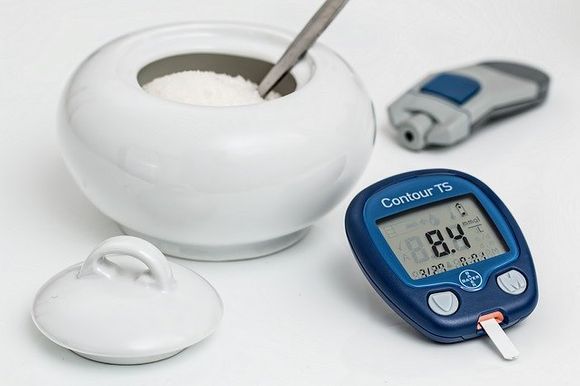Author: Sylvia Marinova, PhD student in the Genomic Stability Laboratory at BAS
From a metabolic point of view, pregnancy is a complex physiological condition in which a number of changes in metabolism occur.
Due to the fact that much of it is used by the fetus, its amount of fasting in the blood strongly decreases. Metabolism of proteins and fats also changes. It is also known that sensitivity to insulin - a hormone that plays an important role in blood sugar regulation, also decreases as pregnancy progresses. The body's natural reaction is the production of a larger amount of it to compensate for less sensitivity.
Although this is a normal process and most women manage to adapt to it, in some sensitivities is so reduced that normal blood sugar levels cannot be maintained. This condition is called gestational diabetes or more diabetes during pregnancy.
In other words, this definition includes both women with undiagnosed type 2 diabetes mellitus, which is identified in the early stages of pregnancy, andthose with "real" gestational diabetes, the symptoms of which manifest themselves in the later stages.
Gestational diabetes - causes

Gestational diabetes is associated with both increased insulin resistance and impaired function of the beta cells of the pancreas that produce insulin. There are many causes of diabetes during pregnancy.
- Historically, insulin resistance during pregnancy has been attributed to the effects of hormones released by the placenta.
- Although their concentration actually increases towards the end of pregnancy, there is still no known mechanism [ref. 3]that binds them to a decrease in sensitivity to insulin.
- Another factor associated with the disease is overweight in the mother. Obesity is considered a chronic inflammatory process, and it secretes factors of inflammation that are known to disrupt the correct response of cells toinsulin.
- In addition, pregnancy in itself is an inflammatory process [ref. 4] and the maternal organism adapts to it so that it can hold the fetus, but on the other end insulin resistance is stimulated.
- Family predestination also plays a role.
How to recognize gestational diabetes - symptoms and examination
In most women, the condition does not have clearly distinct symptoms, or they are often attributed to pregnancy. Increased thirst and frequent urination may occur. Therefore, screening for gestational diabetes is done in each pregnancy. Most often, a glucose-tolerant test is conducted after the 20th gestational week. It takes 75 grams of glucose and two hours later the blood sugar level is recorded by taking a blood sample. This assesses how the mother organism digests glucose.
Is there a risk of complications for the mother and the baby

In women with gestational diabetes, blood sugar usually returns to normal soon after birth. However, its consistently high amount during pregnancy can lead to:
- Overweight of the baby - maternal glucose is the main energy source for the fetus.
- Fetal hyperinsulinemia and hyperglycaemia - increased levels of insulin and glucose in the blood of the fetus
- Birth by caesarean section - surgical removal of the fetus due to its large size. Recovery for the mother is slower compared to natural birth
- Preeclampsia - this is a serious condition in which the mother's blood pressure is increased during pregnancy. It can lead to serious and life-threatening complications in both the mother and the fetus.
- Hypoglycaemia - mothers with gestational diabetes, who need to regulate blood sugar through medicines, as a result may experience hypoglycaemia - a sharp decrease in blood sugar. The condition should also be treated immediately. It is also dangerous for the baby immediately after birth and therefore it should be monitored in the first few hours.
- Type 2 diabetes - women who develop gestational diabetes have an increased risk of type 2 diabetes later in life.
There are other complications that can occur, but the above are basic.
Useful tips for women with gestational diabetes
- Eat healthy - Choose your food. It should be tailored to your condition and include foods rich in fiber, lots of vegetables, less fat and less quickly degradable sugars. You can consult a nutritionist to give you the necessary guidance,
- Lead an active lifestyle - regular physical activity is another way to regulate blood sugar,
- Monitor your blood sugar levels regularly,
- Do not gain more weight than recommended during pregnancy,
- Test for type 2 diabetes after birth
Can a healthy lifestyle protect us from gestral diabetes?

There are a number of things that we ideally need to consider before we become pregnant:
- comprehensive examination in obstetrician and gynecologist,
- a few studies that we should do, even if we have no complaints,
- intake of specific vitamins before conception,
- to strive for a healthy daily menu,
- prepare our musculature with exercises aimed at the relevant muscle groups
In general, a healthy life even before pregnancy [ref. 5], good weight and physical health are a prerequisite for the courseof a normal pregnancy.
Science is also evolving in this direction of disease prevention. A new method was recently created to predict the risk of gestational diabetes in the early stages of pregnancy or even before it. The study [ref. 6] was published in the prestigious journal Nature Medecine and is based on the analysis of data from about 600,000 pregnancies.
Read more:








